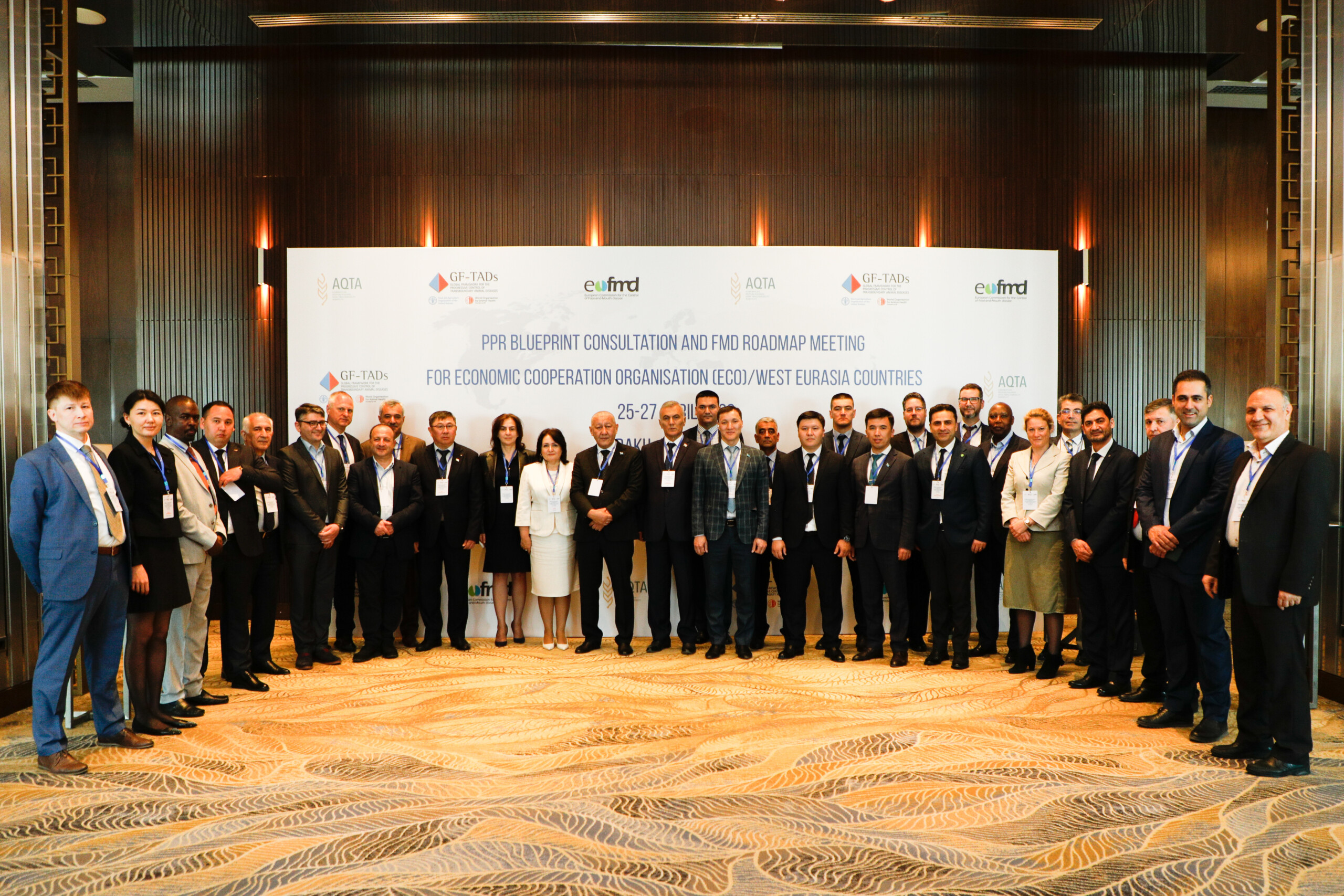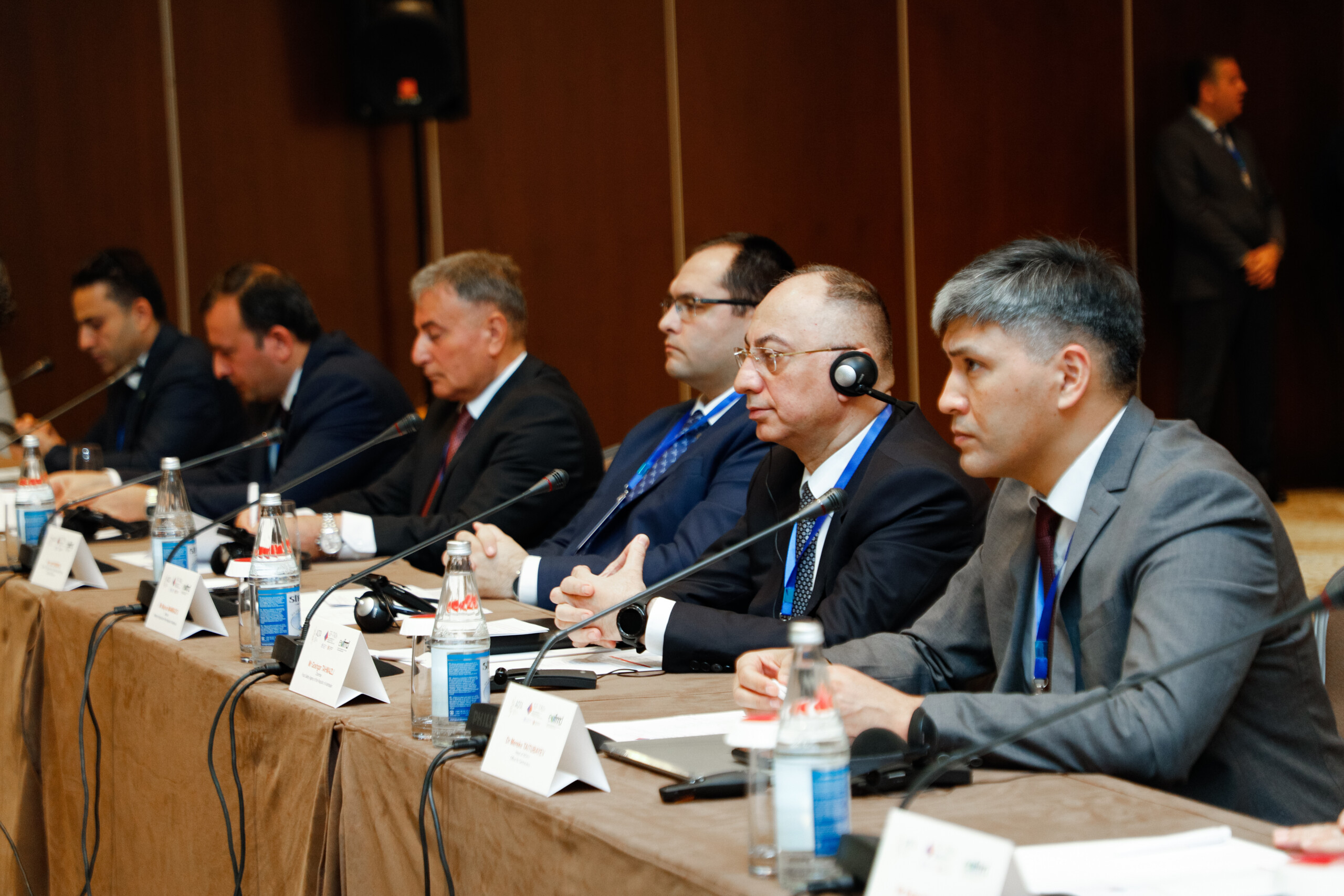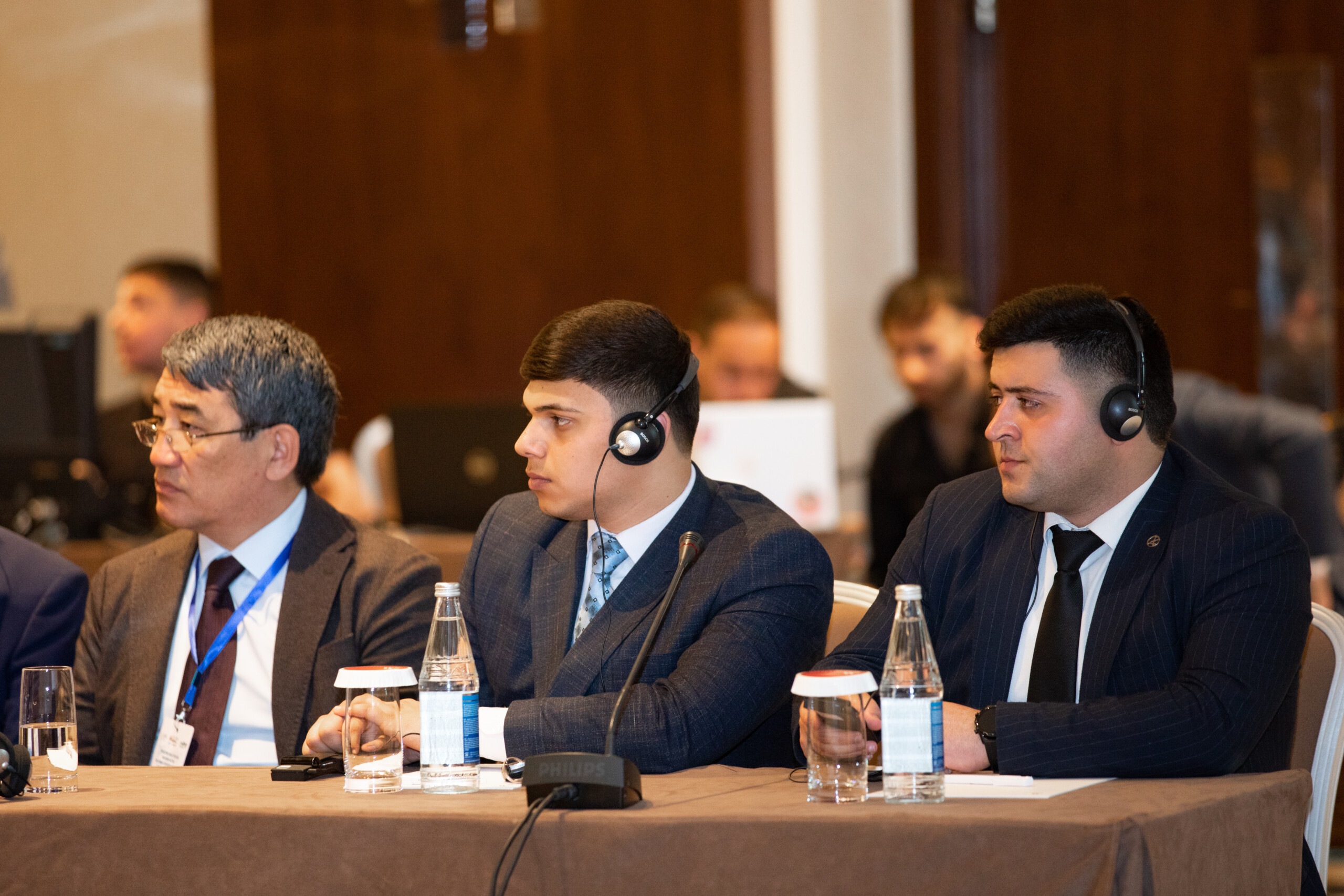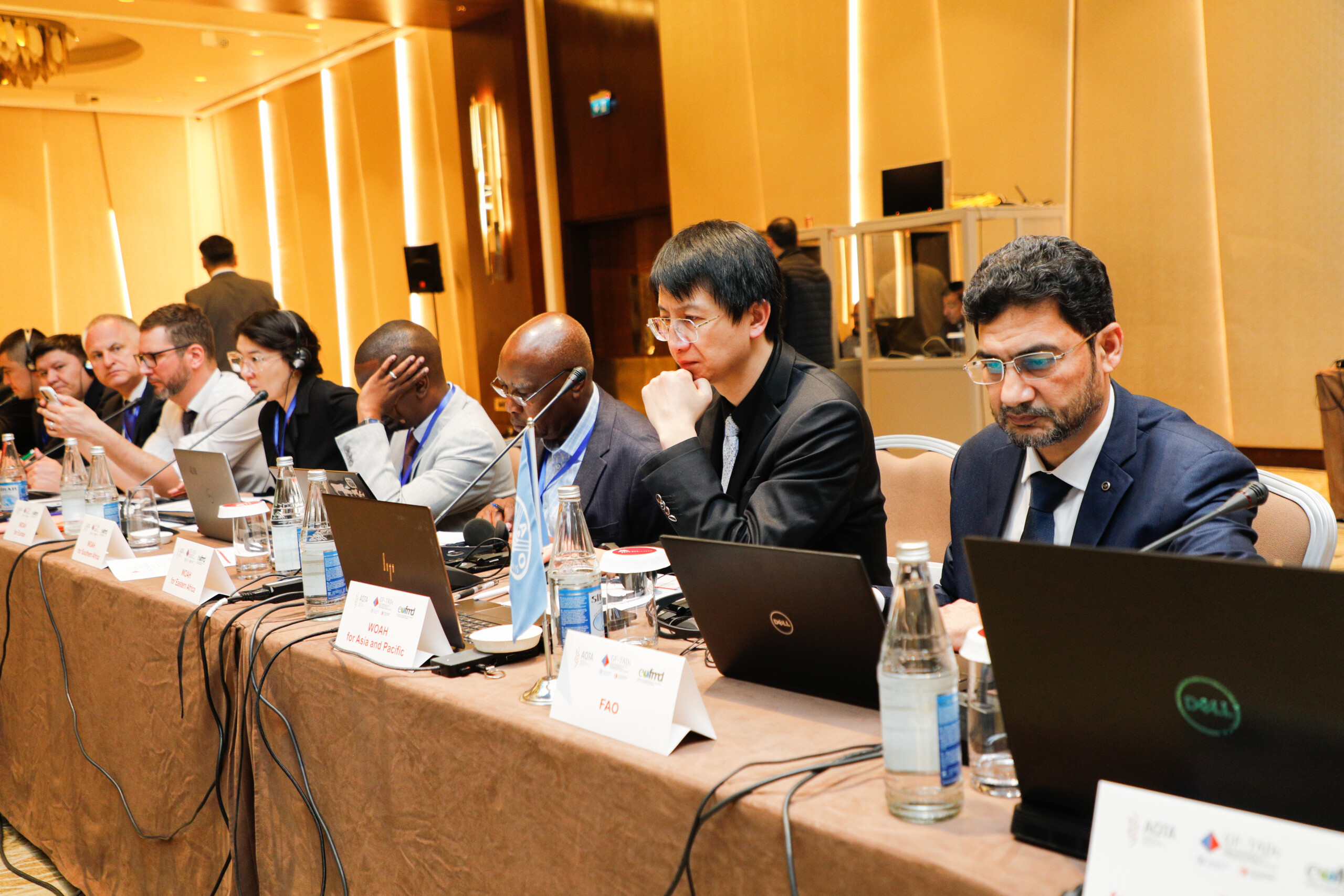


Organized by the Food and Agriculture Organization of the United Nations (FAO), the European Commission for the Control of Food-and-Mouth Disease (EuFMD), and the World Organisation for Animal Health (WOAH), in collaboration with the Food Safety Agency of the Republic of Azerbaijan, the regional meeting took place from 25th to 27th April 2023 in Baku, Azerbaijan. The primary focus of the meeting was the eradication of Peste des Petits Ruminants (PPR) and the control of Foot-and-Mouth Disease (FMD) in West Eurasia countries. It was held as part of the Global Framework for the Progressive Control of Transboundary Animal Diseases (GF-TADs) initiative, which aims to efficiently prevent, detect, and control such diseases, prioritizing FMD and PPR. The event commenced with opening remarks from Mr. Goshgar TAHMAZLI, the Chairman of the Food Safety Agency of the Republic of Azerbaijan, and Mr. Majnun MAMMADOV, the Ministry of Agriculture of the Republic of Azerbaijan, demonstrating the significant political support for the initiative.
The meeting gathered representatives from ten West Eurasia countries; Azerbaijan, Georgia, the Islamic Republic of Iran, Kazakhstan, Kyrgyzstan, Syria, Tajikistan, Türkiye, Turkmenistan, and Uzbekistan. Its primary objective was to review the FMD situation in the region, assess progress along the roadmap, and promote the effective utilization of existing tools and guidelines. Additionally, the meeting aimed to introduce the key elements of the PPR Blueprint and identify priority steps toward PPR eradication in the ECO region.
During the meeting, the participants reviewed and updated the epidemiological situation of FMD and PPR in the West Eurasia (WEA)/ECO region. They assessed the progress made by countries in implementing the Progressive Control Pathway for FMD (PCP-FMD) and the PPR stepwise approach. Key activities for FMD and PPR prevention and control were mapped, and the next steps for FMD and PPR control were identified and adopted.
The event emphasized the importance of incorporating the PPR Global Eradication Programme (GEP) Blueprint into the implementation of national and regional strategies and investment plans. It also aimed to identify capacity gaps and challenges in FMD and PPR control/eradication and establish solutions and recommendations.
The participants provided opportunities for countries that have not reported PPR to discuss risk assessment, risk-based approaches to PPR control, contingency planning, and capacity building for official PPR freedom dossier preparation.
The regional meeting serves as a crucial platform for continuous evaluation and monitoring of the PPR and FMD situation. It aims to harmonize policies and strategies within the region and with other regions, implementing the Global Strategies. The meeting explores tools and approaches that can be implemented in synergy, identifies gaps, and agrees on interventions for the upcoming years.
The recommendations and outcomes of the meeting provide a roadmap for West Eurasia countries to progress in the eradication of PPR and FMD in the coming years. By collaborating and implementing these recommendations, the region can take significant steps towards achieving the goals of disease control and eradication.
In conclusion, the regional meeting in Baku, Azerbaijan, played a crucial role in advancing the eradication of PPR and the control of FMD in West Eurasia countries. The meeting facilitated discussions, reviewed progress, and generated recommendations to strengthen regional efforts. With continued collaboration and implementation of the agreed-upon measures, the region can move closer to the ultimate goal of eradicating PPR and achieving effective control of FMD.
Special recognition should be given to Dr Mereke Taitubayev and his team from the Subregional office of WOAH in Astana for their instrumental role in organizing the regional meeting on PPR and FMD in Azerbaijan. As the Secretariat for PPR and FMD, they worked diligently to coordinate with FAO, the Veterinary Authority of Azerbaijan, and other parties and chaired many sessions, ensuring the success of the meeting. We would also like to acknowledge the other participants who chaired some working sessions, the Delegate of Azerbaijan, Dr Galib Abdulaliyev, and colleagues from FAO and EuFMD



